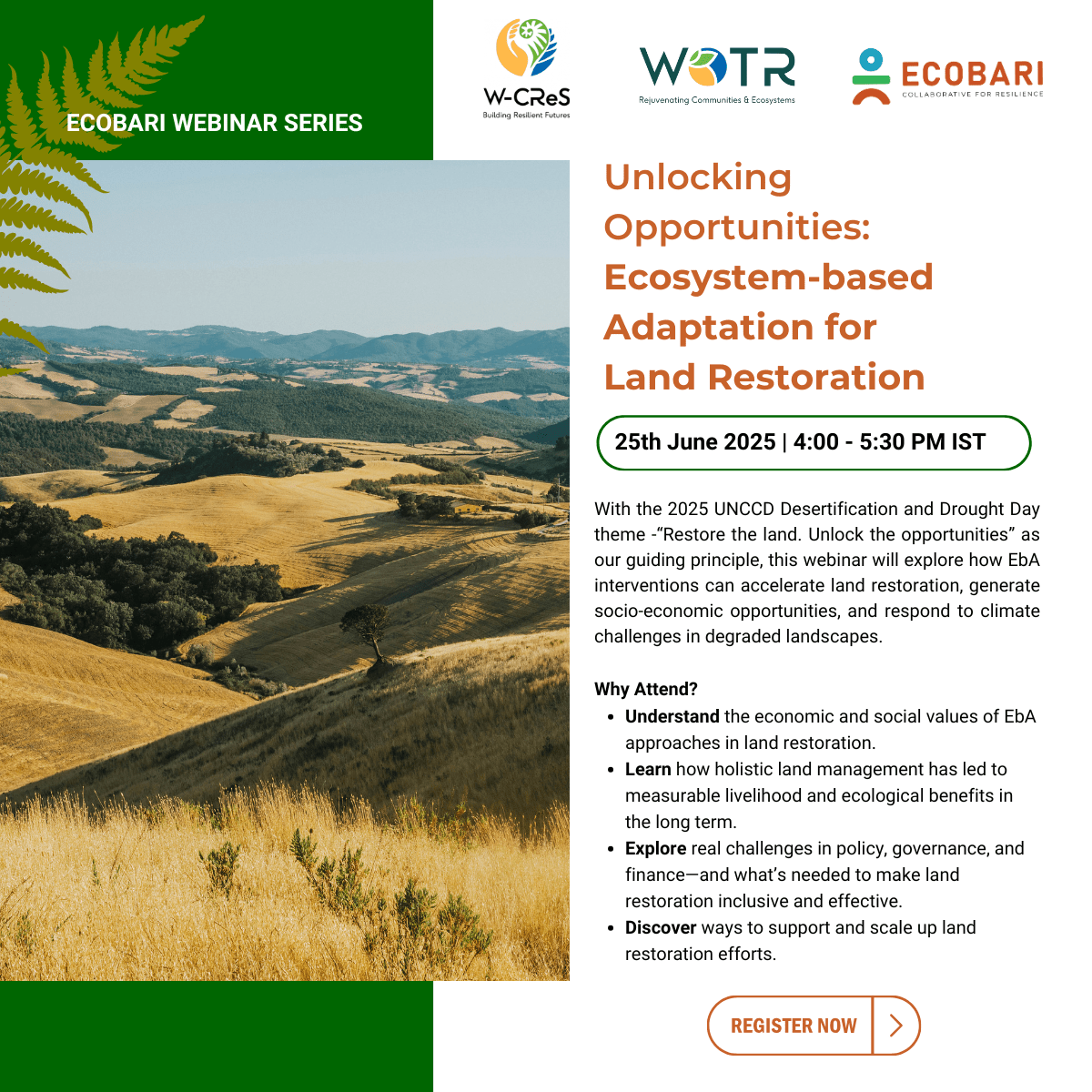
Concept Overview:
Land degradation, biodiversity loss, and climate vulnerability are deeply interconnected challenges that threaten both ecological integrity and human well-being. Numerous stakeholders have been working on restoring land over the years and it is now the right time to reflect and review our work through the lens of the opportunities and impact. Ecosystem-based Adaptation (EbA) is the strategic use of biodiversity and ecosystem services to restore land and help people adapt to climate change. This method under the broad umbrella of Nature based Solutions, offers a holistic pathway to restore degraded landscapes while building resilient, sustainable livelihoods.
Through interventions such as restoring degraded forests, reviving traditional water systems, and scaling agroecological practices, EbA not only regenerates ecosystems but also enhances the adaptive capacities of communities most affected by climate impacts. Global experience has shown that when these efforts are embedded in principles of equity, economic security, and inclusive participation, they are more likely to yield long-term ecological and social benefits and sustain the test of time.
By aligning land restoration efforts with local needs and knowledge, EbA can deliver multiple co-benefits: improved agricultural productivity, enhanced water security, reduced disaster risk, and better health and well-being outcomes. Despite its promise, large-scale implementation faces significant challenges—including limited financing, fragmented governance, undervaluation of ecosystem services, and weak institutional frameworks for inclusive decision-making.
As we mark the 2025 UNCCD Desertification and Drought Day (17th June), and EbA Knowledge Day (21st June), this moment offers a timely opportunity to spotlight Ecosystem-based Adaptation as a powerful Nature-based Solution that bridges ecological renewal with social and economic development.
Guided by this year’s UNCCD theme, “Restore the Land. Unlock the Opportunities,” this webinar will bring together diverse voices to explore how EbA interventions can drive landscape restoration, generate socio-economic opportunities, and build resilience in the face of a changing climate.
Objectives:
- To highlight the economic and social values of Ecosystem-based Adaptation approaches in land restoration.
- To showcase case studies where holistic landscape management has led to measurable livelihood and ecological benefits, long after projects are complete.
- To discuss implementation challenges, including policy, finance, and institutional gaps, and explore potential solutions.
- To foster cross-sectoral dialogue among practitioners, policymakers, researchers, funding organisations and local stakeholders.
Key Discussion Themes:
- Valuing Ecosystem Services: Quantifying the tangible and intangible benefits from restored landscapes—water retention, soil fertility, carbon sequestration, and cultural values.
- Local Livelihoods & Equity: Ensuring that restoration efforts strengthen community resilience, particularly for marginalized groups.
- Governance & Institutional Challenges: Addressing fragmented land use policies, unclear tenure rights, and limited local participation.
- Finance & Incentives: Mobilizing sustainable finance for community-led EbA projects and creating enabling policy environments.
- What more can we do to fill in the gaps in restoration efforts?
Session Recordings:
